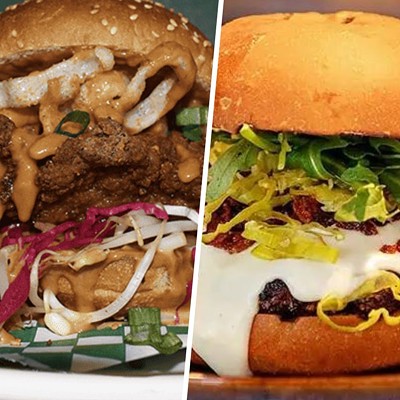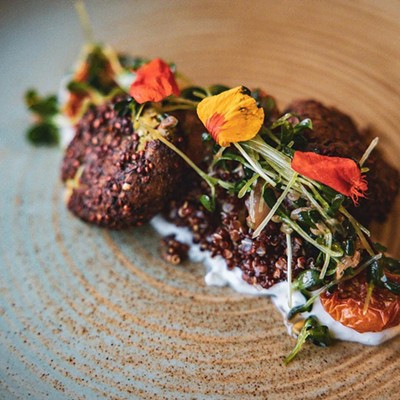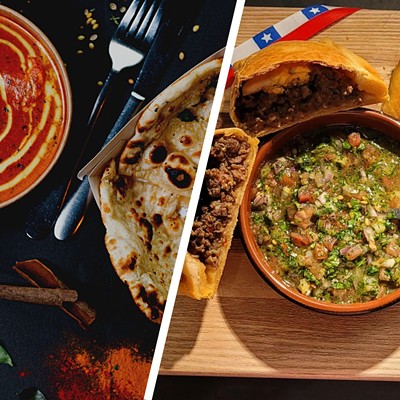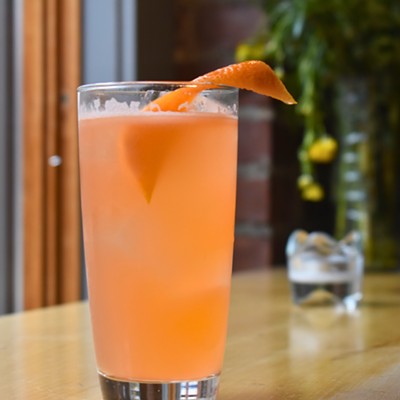Odds are, the chicken that winds up on your table today is quite a different beast than it was 50 years ago. Thanks to careful genetic selection, Canada's commercial chickens have enormous breasts, twice as big as the ones they had in the '70s. Comercial white broiler chickens, often called Meat Kings, can grow twice as large and as quickly as the '50s chicken, reaching slaughter size in six weeks. They're a cross between White Plymouth Rock or New Hampshire hens and Cornish roosters. When farmed commercially, these top-heavy creatures are prone to falling over and getting stuck on their backs. Sometimes their legs snap under the bulk of their bodies. They're also prone to cannibalism when cooped closely together in factory farms.
Some Nova Scotians feel we're trading quality for quantity.
"I personally find purebred poultry to be healthier and hardier than commercial strains of poultry," says Shannon Doane, treasurer and secretary of the Nova Scotia Purebred Poultry Association. "They live longer, are not as prone to temperature changes and tend to be tougher all round," explains Doane, an Elmsdale local who has been raising purebred Rosecombs for nearly 20 years.
While in the past, chicken coops were full of heritage breeds such as Buff Cochins, Silver Spangled Hamburgs and Silver Gray Dorkings, you'd have to visit a family or a hobby farm to find those breeds today.
"Unfortunately, with the decline of the family farm, many of the purebred breeds of poultry from the past are regrettably declining as well," Doane laments.
Michael Howell, chef and owner of Tempest Restaurant in Wolfville and active member of Slow Food Nova Scotia, hopes there will be an "appropriate over-reaction" on the part of the organic/free-range movement to commercial poutry farming. Howell is organizing the Slow Motion Food Fest in Wolfville (November 6-8), screening documentaries such as Food Inc, which he hopes will help "share knowledge" about the realities of factory farming and "turn people around."
Several vendors at the Halifax Farmers' Market (including Little Dorset Farm and Pasture Hill Farm) carry a good selection of free-range chickens, but surprisingly, the majority, if not all, of the poultry at the Farmers' Market is Meat King birds. According to Angela Patterson, who represents the Atlantic Canadian Organic Regional Network, an organization promoting organic agriculture and eating organic, "breed is not the concern." For Patterson, the concern is what chickens are fed and whether or not they have space to roam around. When Meat Kings get excercise, Patterson says they can grow to be healthy. Still, she prefers to eat heritage birds herself.
There's value in preserving bio-diversity for poultry. Today's broilers lack genetic diversity and have difficulty fighting diseases like H1N1, according to an international research team led by Hans Cheng of the US Department of Agriculture. In other words, one virus could take out a whole flock.
As well, commercial Canadian turkeys are genetically predisposed to have health problems. Their breasts grow so rapidly that their heart and lung development can't quite keep up. They experience sudden death syndrome, skeletal disorders and degradation of the pectoral muscles, causing breast meat to turn a gross greenish colour. The hefty birds also have difficulty mating naturally.
Our food is not the only thing getting fatter and coupling clumsily. Around 10 percent more Canadians are overweight today than they were in 1979. Over half of Nova Scotians report being obese or overweight, according to Statistics Canada. It appears to be a vicious cycle, in which we force our food to grow unhealthy with us.












